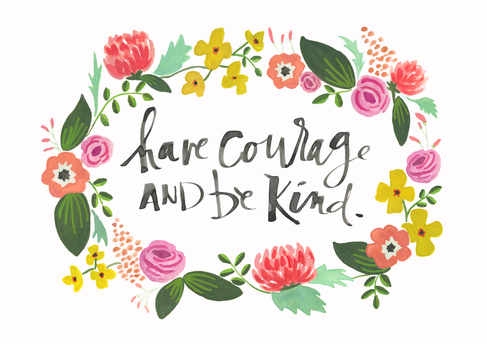Several times over the last ten years, I found myself in the city where the man who sexually abused me as a child lived. Most of the time I was terrified to accidentally run into him. Sometimes I became full of rage and fantasized seeing him at a gas station and attacking him. And other times I would get caught off guard by my grief and sit in my car weeping outside the hotel where I was staying.
As a survivor of childhood sexual abuse, the myriad of emotions I experienced changed as naturally as the Texas sky in springtime. Sometimes I’d feel guilty about the complexity. Other times I wouldn’t.
I learned that each emotion had its place.
In March of this year, when I found out the man who abused me was never reported to law enforcement, a strong desire for justice gave me the extra courage I needed to walk forward. I felt validated knowing the criminal justice system would handle what the Southern Baptist Convention would not–and could not–handle. I felt a sweeping loss as my mental health suffered. I burned with indignation as this man, who already has taken so much of my life by his actions, consumed more: I lost sleep, I lost time with my daughter and my husband, and lost the easy joy I generally danced in.
There were parts of me that wanted to destroy him. There were parts of me that wanted to destroy myself.
And again, each emotion had its place.
As I worked with law enforcement, my detective encouraged me to not share the name of the man who abused me publicly until they had everything in order for the criminal case they’re working on. They understood this man’s current role and his access to vulnerable people, including children. Yet the benefits of not coming out with his name publicly outweighed the risks in regard to the integrity of the criminal investigation. I respected their wishes then and I respect them now.
Somehow this felt right and good and okay. Even though the only thing that remained between me exposing the man who did this to me was a “publish” button, I have yet to have peace about sharing my story in such a public way, most likely because of the condition of my heart. Some people have gone public and done it in a way that glorifies God while respecting the criminal process. I would have shared out of a place of vengeance.
I’m glad I had a little extra space to reconsider going public because, for me, it was not the right choice to make at the time.

Since I’ve been offline for most of the last two years, I guess I forgot how ruthless the voices on social media are…myself included. In the last month, since I shared my story online (without identifying my abuser), I’ve clicked on enough hashtags and read enough fodder to lose a little bit of faith in the world (and in myself).
Don’t mishear: there are some pretty awful people who have done some pretty awful things. Many well-respected men and women, especially within the SBC, have had their skeletons come out and be displayed for all the world to see.
In the court of public opinion, most are starting to pay a hefty price for their sins and for their crimes. I want to reiterate that the people who commit these horrid acts–and the ones who cover them up–are ultimately responsible for whatever consequences come their way.
But in all of this, there is something I just can’t get my spirit to shake off:
This court of public opinion–social media, newspapers, blogs–is not and should not be the final destination of justice. However, it seems as if most of us treat it as the highest court of all, damning those who have lied, cheated, stolen, raped, abused, and covered up to a man-made hell of Twitter firestorms, petty insults, unnecessary commentary, and misplaced desires to have the final word.
I understand as survivors of abuse we feel like we have no voice and now we can say whatever we want, when we want, to whomever we want. There is power in rediscovering our voice.
We cannot neglect our responsibility to be like Christ and we cannot evade the call to exercise wisdom with how we discuss these things, especially in public forums.
Justice and grace are not mutually exclusive.
Does the man who abused me, who stole so much of my life from me as a sixteen-year-old and over the last 22 years deserve the justice coming his way? Yes.
Does he deserve grace? No.
But here’s the thing: I don’t deserve that grace either.
I don’t write this in a self-deprecating manner.
I don’t intend to minimize what has happened to me or to the countless number of women and men, boys and girls, who have been abused in the worst possible ways, and in the name of Jesus.
The humbling reality we are faced with in this and in every part of our life is the very basic tenet of the Gospel: God so loved the world that He gave his only son to die for my sins, for your sins, and for the sins of the man who abused me.
This includes his sin of abusing me.
It is a grace none of us deserve but all of us can freely receive.
I’m afraid that the beauty of this grace is being buried alive by the permission we now have to speak freely. Life and death are in the power of the tongue, and in our attempt to bring the light into darkness, we are inadvertently suffocating out the Life the world needs to survive.
As we enter into this new climate of finding freedom from abuse that happened to us, let us not use this freedom as an opportunity to cause harm to others in the name of seeking justice.
Let us recognize the same God who sought us out and asked us, “Where are you?” seeks out all of us, even the criminals hanging on the cross.
When reconciliation plays out here on earth, may we remember the love of God that has reconciled us is also available to those who have hurt us.
May we give thanks that all of our brokenness is healed through the same holy man on the same holy cross. This man is near to us when we are brokenhearted and he is near to those who have hurt us when they are brokenhearted. He grieves for us when we are far from Him and he grieves for the world when they are far from him.
As justice begins to shine like the noon-day sun, may our hearts also shine with hope and grace for ourselves, for others, and for the world to come.
Lord Jesus Christ, son of God, have mercy on me, a sinner.
